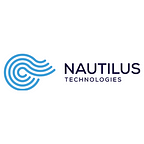Ensuring Data Protection & Transparency with Blockchain
Blockchain is an innovative new way to store data. We’ll look at how this new technology can help with data security in this blog. This game-changing technology has the potential to save costs, increase transparency, and improve security. However, depending on how businesses employ them, there are likely to be certain negatives.
Blockchain is a strong asset management and tracking tool for any company network. This system ensures that everyone knows what they possess by documenting every transaction on an open, non-alterable digital ledger. Whether it’s a real item like a home, vehicle, or land, or an intangible asset like patents, copyrights, and so on, nearly everything may be digitized using this technology.
The groundbreaking blockchain technology provides an impenetrable data storage method. The technology’s assured transparency and immutability, which eliminates any possibility of tampering with information, make it the finest instrument for data protection. For GDPR compliance purposes, data protection is simplified by making records visible, immutable, and spread across various nodes throughout the network.
Blockchain challenges security risks
In comparison to current technologies, blockchain has the potential to provide a safer and more secure way of keeping data. This innovative solution can improve your company’s ROI by reducing costly centralization expenses and removing the need for third-party validators. In order to keep your records safe from prying eyes, they are only shared with those who have been granted authorization by you or another trusted person.
Encryption and Validation with Blockchain
Hackers have found that record-keeping systems are prone to fraud and cyber-attacks, making them an easy target. Due to a lack of clear transparency, data verification might take an excessive amount of time. Adopting blockchain technology can help customers stay competitive by removing the need for third-party records trust.
Smart contracts used with blockchains provide an additional layer of security by allowing modifications to be verified only when particular circumstances are satisfied. This allows accurate validation of any transactions that occur within the system, as well as ensuring consensus across all nodes. When someone modifies data, all nodes in the distributed ledger network check the update, ensuring that no one can conduct fraud.
Decentralized Data Storage
The consensus process that distinguishes blockchain technology assures that no one authority has the ability to alter the data. It means that all of the data on this network is permanently preserved, and no one may modify it unless the other members agree. The technology is especially useful in the public sector because it can manage all of the sensitive data that is distributed across a network safely and securely.
Unfeasible to Attack
The most secure type of data storage is blockchain. Your information is never hacked or altered since it is decentralized, encrypted, and cross-checked! As a result, no one can hack or attack the blockchain network’s records. Because the technology is distributed among multiple nodes, hacking the majority of them is nearly impossible, ensuring that the data is well-protected.
In conclusion,
Blockchain, as a distributed ledger technology, is a strong tool for developing the financial services of the future. It offers an unparalleled level of data security by preventing any action or transaction from being tampered with, counterfeited, or validated by multiple nodes. The immutability of data is a key feature of blockchain technology. Businesses and consumers alike will profit from growing technology as a front-runner for success in numerous fields.
